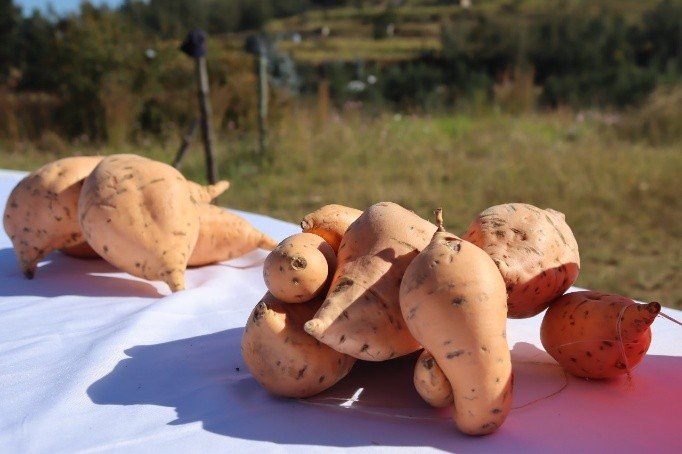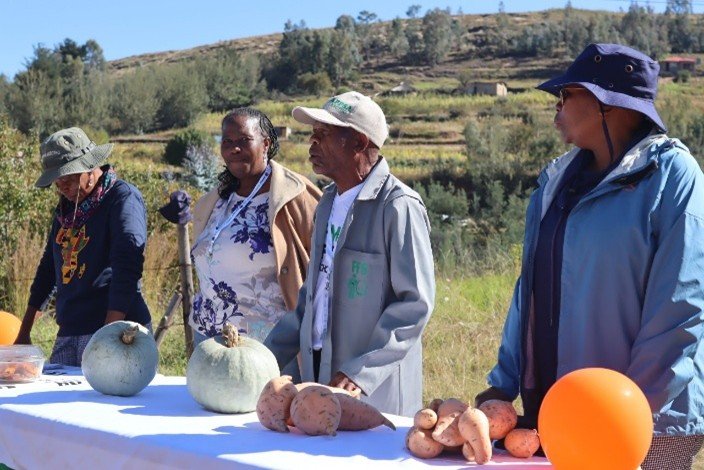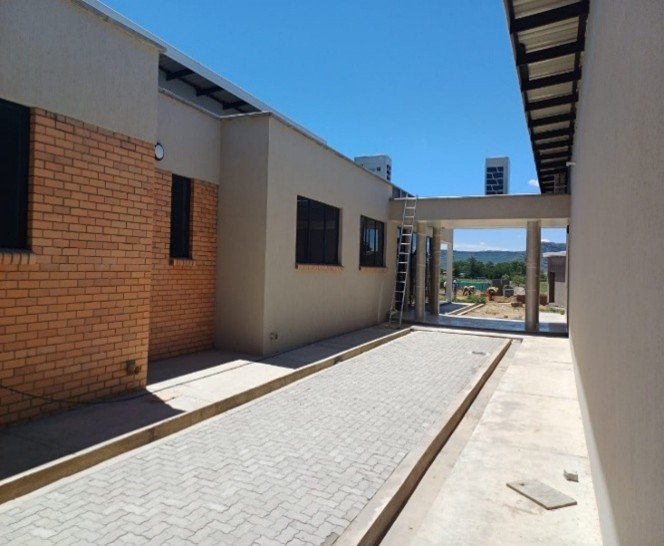APPSA-Lesotho hosted two technical officers from the World-Bank from the 28th April to 2nd May 2025, who were in the country to undertake APPSA Implementation Completion Report. This was a five-day mission which started with presentations of what APPSA is, what it has achieved, how it collaborates with other national and international institutions, its challenges and the way forward after it has phased out. Such presentations were made by among others the Project Coordinator, APPSA M&E, APPSA ESS and Commodity Leader for Cereal Crops. The opening remarks were made by the Director of the Department of Agricultural Research, Dr. Lebesa who, after welcoming everyone acknowledged the good work done by APPSA till this point as well as the shortfalls. She indicated that the intention at the beginning of APPSA was to come with developments that would shape Lesotho especially agricultural activities through research work. The Director indicated that as much as APPSA has done some remarkable work, there are areas where the project fell short and with this visit, we are ready to be advised so that going forward even though it will be beyond APPSA, the next project does not do the same mistakes. She applauded all present for picking up the speed after a lot of challenges in the beginning of this project including COVID 19. The World Bank TTL was also recognized for the work his office did even when the two parties were on loggerheads, but both showed patience hence the deliverables that are visible today.
The second leg of the mission was to travel to the project sites for the visitors to see first-hand what APPSA has done in terms of technology generation and dissemination, stakeholder involvement and infrastructure.
The first leg of the field visit was in Leribe where the mission met Farmer Field School (FFS) members from Nkoeng and Taung. The school visited was Taung and Nkoeng farmers had come to grace this occasion. The FFS Coordinator mentioned that the schools started in 2022 & 2023 respectively. Each school planted sweet potatoes on 24 plots and 16 plants per plot with the vines procured from South Africa and Eswatini. The varieties planted were “bophelo” and “Khumo”. Mahobong Research station was another stop where the mission were given a tour of the newly constructed buildings which included residential houses, office and a store room.




The mission completed its field visits at Nyakosoba Research Station where they had an opportunity to interact with school children from Nyakosoba, Monyooe, Popanyane and Ngope Ts’oeu Primary Schools who had travelled the sweet potato journey with the Nyakosoba farmers from the beginning. These children were given the vines to plant at their different schools. The mission visit coincided with the harvesting day of the sweet potatoes where farmers even those that were not part of the demonstrations came in numbers to be part of the activities of the day. As another form of technology dissemination, two local radio stations were present to capture the activity and broadcasted it live. These were Harvest FM and MoAfrica FM.
The next stop was for the mission to tour construction works at the DAR Main Station. These included the main office building, the laboratories and the conferencing facility.






